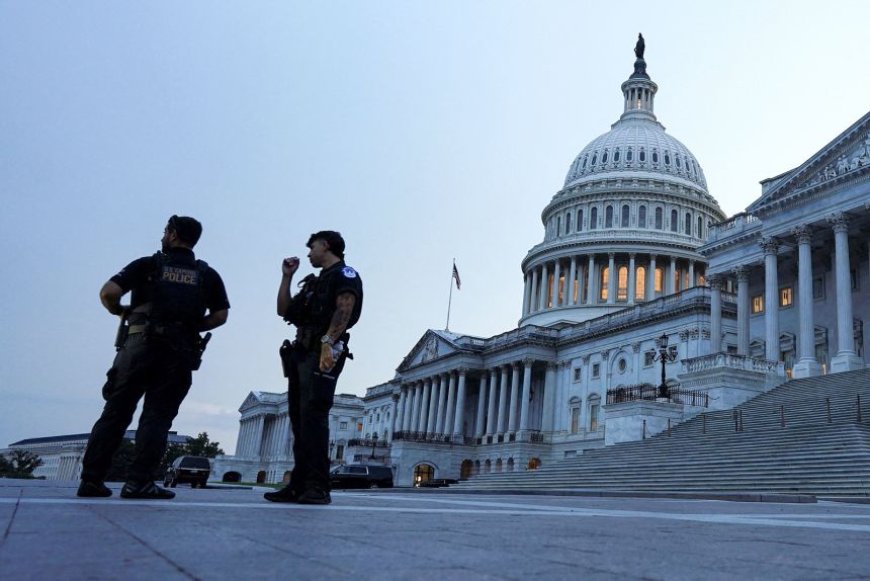Extended Grip on Capitol Policing: Trump Pushes Federal Control Beyond 30 Days
President Trump pushes legislation to extend federal control over D.C.’s police beyond the 30-day limit, citing public safety while raising constitutional concerns.

ChatGPT said:
Here’s a detailed, human-like, SEO-optimized article on President Trump’s push for extended federal control over Capitol policing, structured to comply with Google News publishing guidelines:
Extended Grip on Capitol Policing: Trump Pushes Federal Control Beyond 30 Days
By Ronald Kapper
Published: August 15, 2025
WASHINGTON, D.C. — President Donald Trump is advancing legislation that would allow continued federal oversight of Washington, D.C.’s police forces beyond the current 30-day statutory limit. The proposal, which could involve invoking national emergency powers, has stirred intense debate over federal authority, local governance, and civil liberties.
Background: Federal Oversight of Capitol Policing
Under current law, federal control of D.C.’s Metropolitan Police is limited to 30 days in extraordinary circumstances. Trump’s move seeks to extend this authority, citing concerns over public safety, rising crime rates, and threats to federal property. Recent deployments of National Guard troops have accompanied the federal police presence, a step the White House argues has contributed to a measurable reduction in violent incidents near key government buildings.
Critics, however, warn that prolonged federal control could set a dangerous precedent for authoritarian overreach, undermining local governance and the constitutional autonomy of the District of Columbia.
Legislative and Legal Dimensions
The proposed legislation is designed to formalize the extension of federal oversight. Key elements include:
-
Extension of federal police authority beyond the statutory 30-day limit.
-
Potential invocation of national emergency powers, allowing the President to bypass local oversight.
-
Enhanced coordination with National Guard units to maintain security in high-risk areas.
Legal scholars have expressed concern over the broader implications of these measures. Professor Elaine Harper, a constitutional law expert at Georgetown University, stated:
“Granting indefinite federal control over a local police force risks eroding the balance of power between the federal government and the District of Columbia. It raises fundamental questions about democratic governance and accountability.”
Public Safety Claims and Controversy
The White House argues that federal oversight has contributed to a reduction in violent crime and property damage around Capitol Hill. Officials cite recent statistics showing fewer assaults, vandalism incidents, and demonstrations escalating into violence.
Yet opponents, including members of Congress and civil liberties organizations, challenge the administration’s data and motives. They warn that extended federal control could be politically motivated, potentially used to suppress dissent and limit local decision-making in law enforcement.
“This is not just about safety,” said Representative Maria Sanchez, a D.C. delegate. “It’s about the federal government asserting control over local policing in ways that could threaten democratic norms.”
National and International Implications
Experts note that Trump’s push for extended policing powers in the nation’s capital carries national and global significance. Domestically, it may influence debates on federalism, civil liberties, and the role of the President in emergency management. Internationally, allies and observers are monitoring developments, raising questions about democratic stability in the United States.
The situation is further complicated by political polarization. While supporters argue that extended oversight ensures security during critical periods, critics claim it reflects a trend toward executive overreach, potentially destabilizing established governance structures.
Next Steps and Outlook
The legislation is currently under review in Congress, with hearings expected in the coming weeks. Analysts predict a contentious debate over the constitutional, legal, and practical ramifications of the proposal.
Meanwhile, the Trump administration signals its readiness to invoke emergency powers if necessary, highlighting the administration’s commitment to maintaining federal control over the Capitol’s security apparatus. Legal challenges are anticipated, and the courts may ultimately play a decisive role in determining the limits of presidential authority.








